Research and resources on social cohesion theory and best practice.
The Belong Network Library
Research and resources on social cohesion theory and best practice.
Research and resources on social cohesion theory and best practice.
Research and resources on social cohesion theory and best practice.
The Belong Library is free to access and brings together a wide range of online resources produced by the public, private and civil society sectors to build the evidence base around social cohesion.
It is regularly updated and includes:
Please contact us if you are unable to find what you need – we’d be delighted to help.
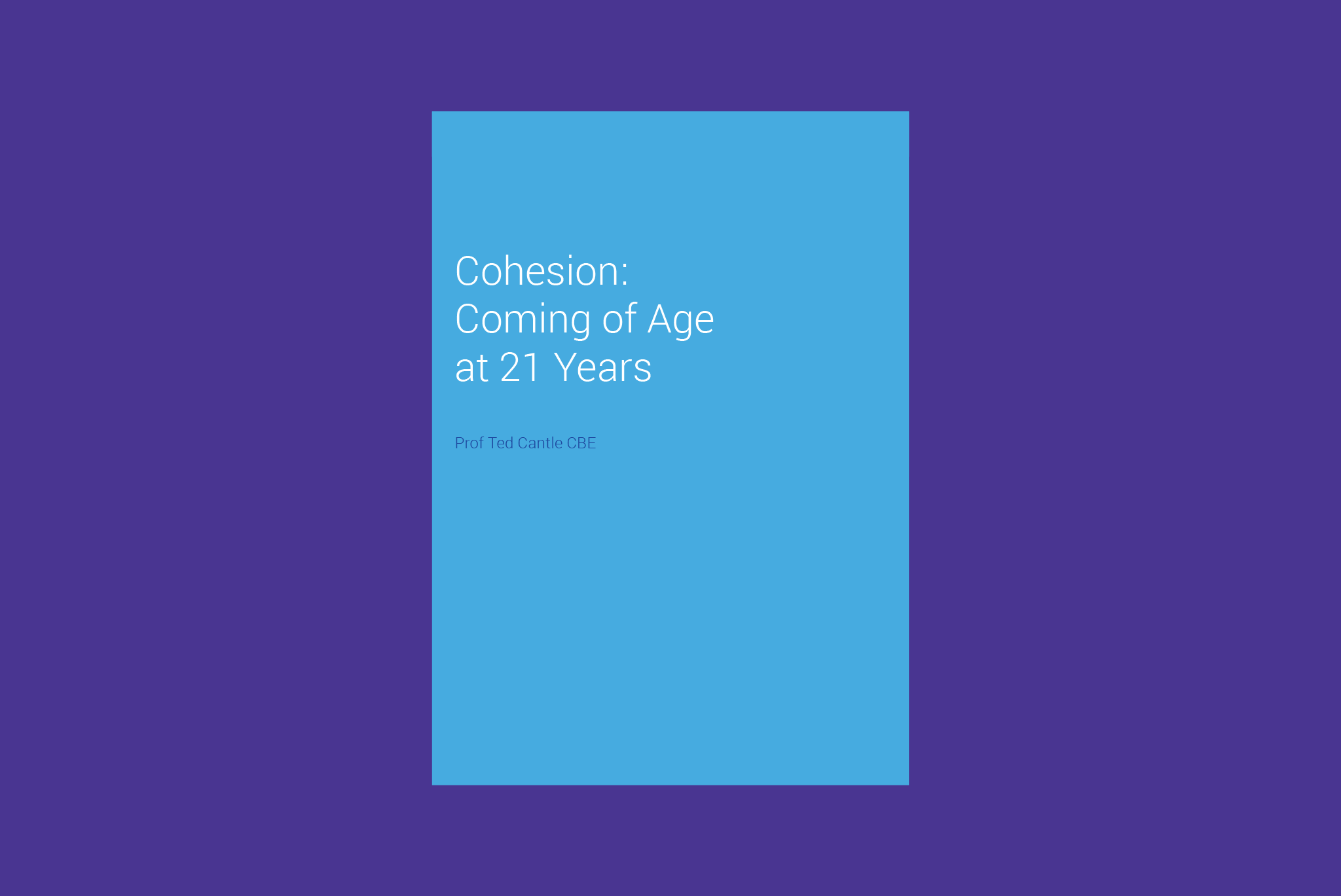
The release of Cohesion: Coming of Age at 21 Years, marks 21 years since Professor Ted Cantle’s landmark report on community cohesion following the riots in Northern towns. This new report looks back to the start of the work to bring communities together and reduce division to this year’s violence and protests in Leicester, including the work to tackle extremism, the role of social media, the debate around immigration and the divisive political context in which we now find ourselves.
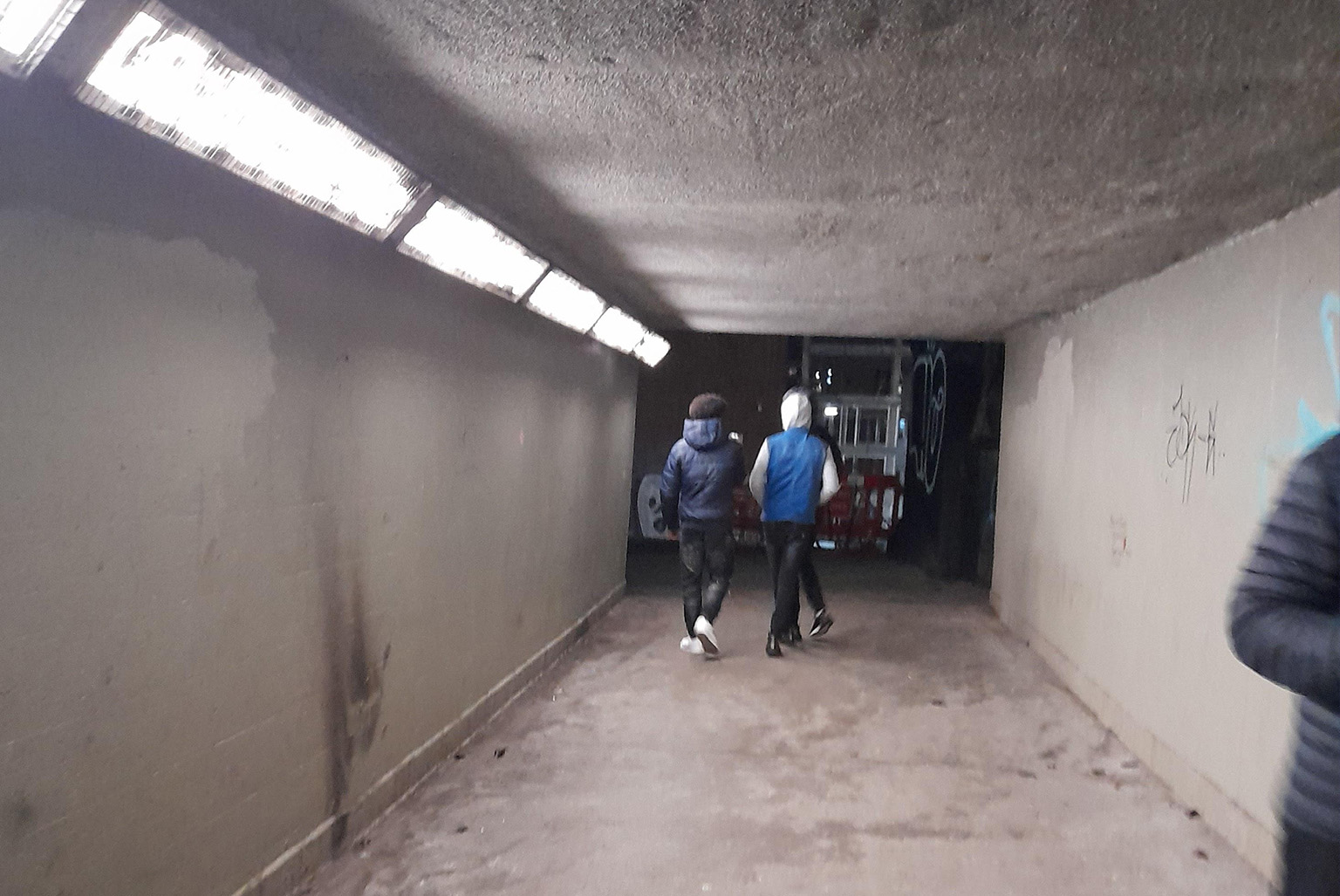
This site contains resources that aim to support the work of practitioners working with migrant communities in the UK. Four practice issues are considered: Communication Barriers Avoiding Cultural Assumptions Working with People from Different Cultural and National Backgrounds Complexities of the Immigration System and Entitlement
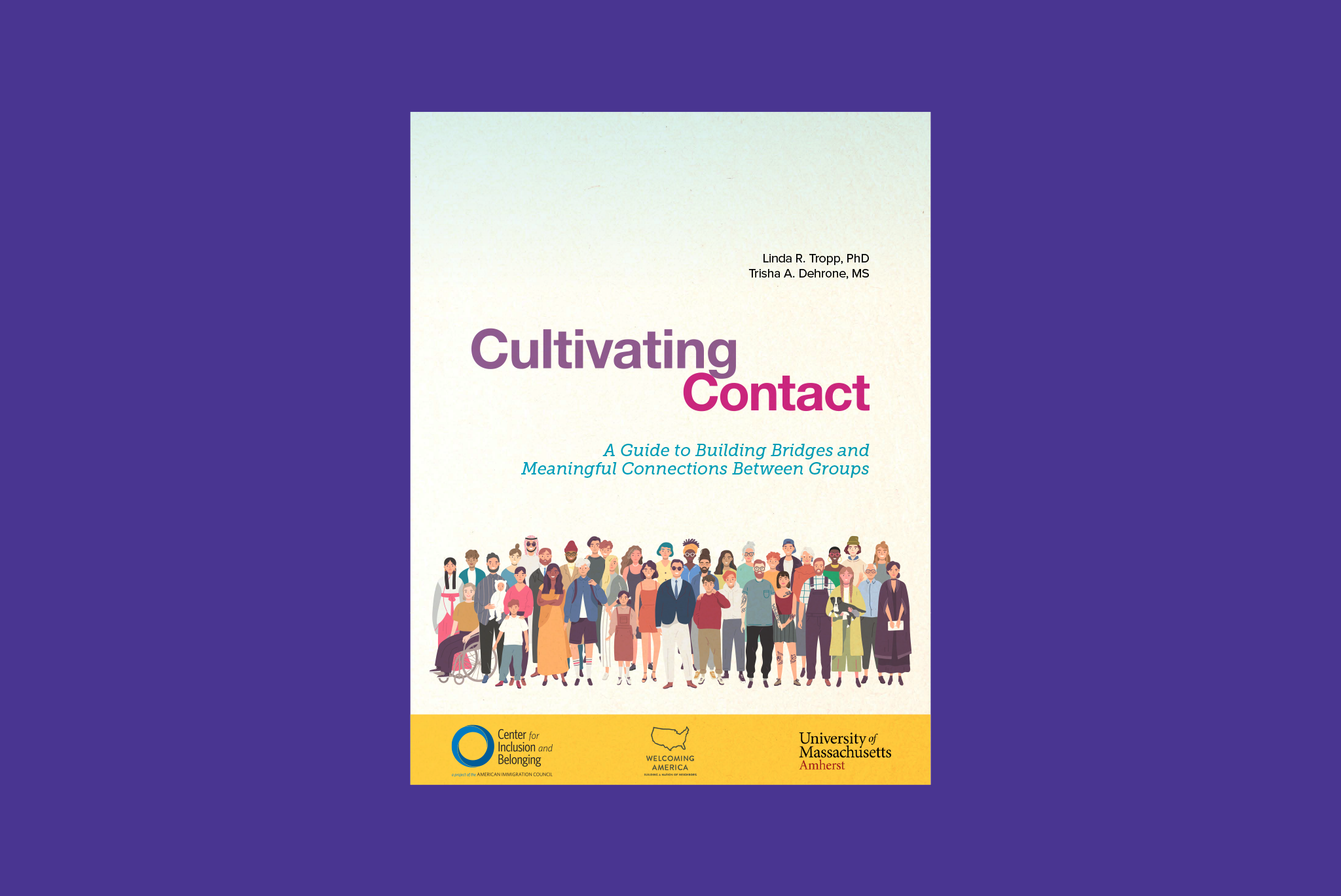
Published in partnership with the Center for Inclusion and Belonging at the American Immigration Council and the University of Massachusetts Amherst, this guide harnesses the lessons drawn from decades of research on how to foster a sense of trust and belonging between people from different backgrounds through community-based programs and initiatives.
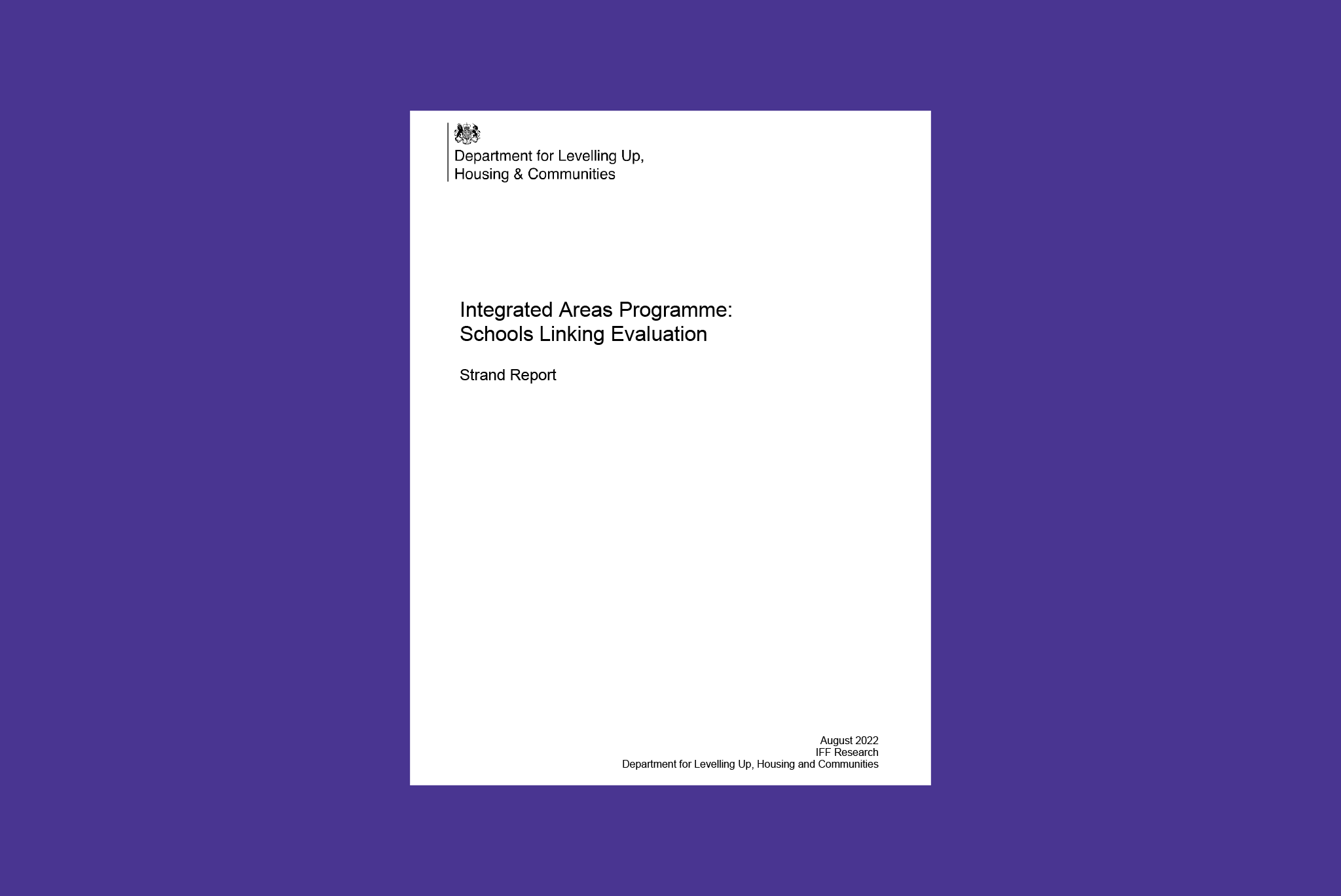
This was a programme that funded 5 Integration Areas to deliver place-based integration interventions. The areas chosen for the pilot programme were: Blackburn with Darwen, Bradford, Peterborough, Walsall and Waltham Forest. DLUHC (then MHCLG) commissioned IFF Research to carry out an independent evaluation of the implementation of three 3 intervention types: Schools Linking, Community Conversations, and Community Ambassadors.

The Toolkit aims to set out the Everyday Integration approach and its key principles but, more importantly, it aims to provide a generalised method, a conceptual framework and set of tools which other places can relatively easily pick up – in whole or in part – to apply an Everyday Integration lens to their own town or city.
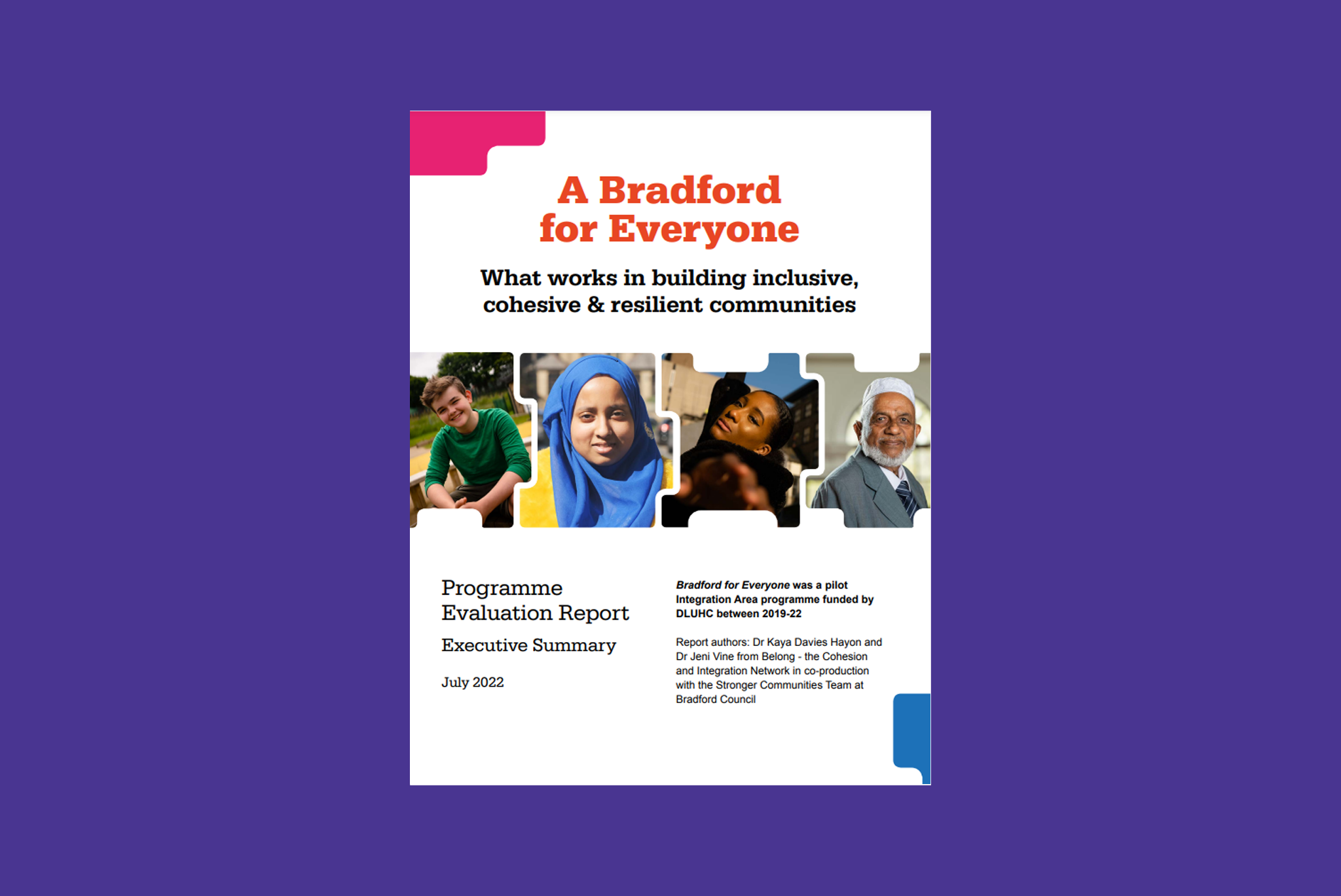
This report details findings to emerge from the evaluation of the delivery and impact of the Bradford for Everyone programme, a pilot funded as part of a central government scheme. The Department for Levelling Up, Housing and Communities (DLUHC) awarded funding to five pilot integration areas: Blackburn with Darwen, Bradford, Peterborough, Walsall and Waltham Forest.

This report analyses social cohesion in Britain from May 2020 to July 2021, focusing on unity, division, and attitudes among different societal groups, with a special emphasis on the experiences of Black, Muslim, and White respondents, to inform future research and policy.

The NCVO has put together some helpful guidance and tips on carrying out evaluation. Easy to use and straightforward advice on things like conducting interviews and focus groups and creating effective questionnaires. This is an external website and includes links to further resources and training.
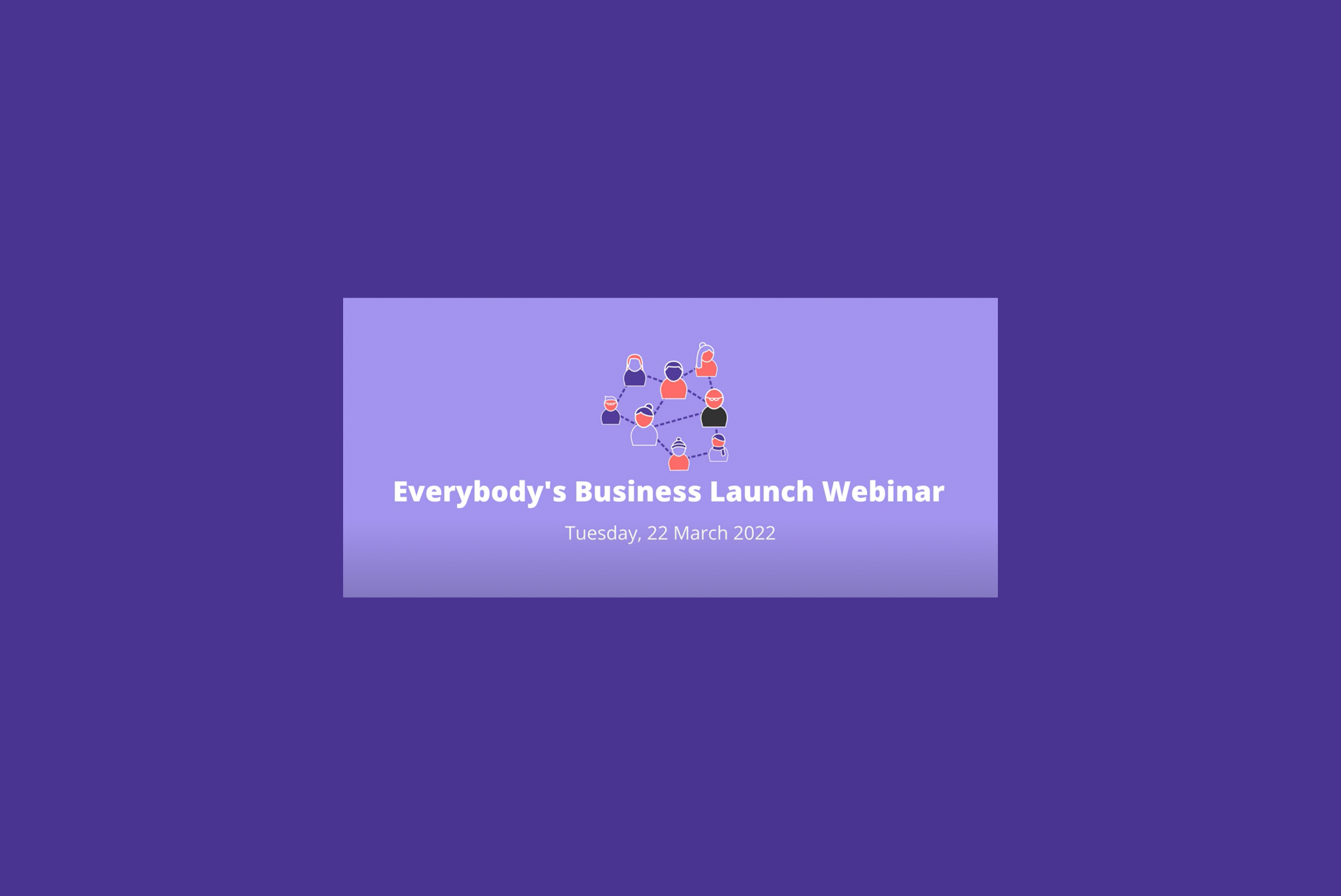
This webinar took place on Tuesday 22 March 2022, to coincide with the launch of ‘Everybody’s Business: the role that business can play in supporting cohesive communities’.
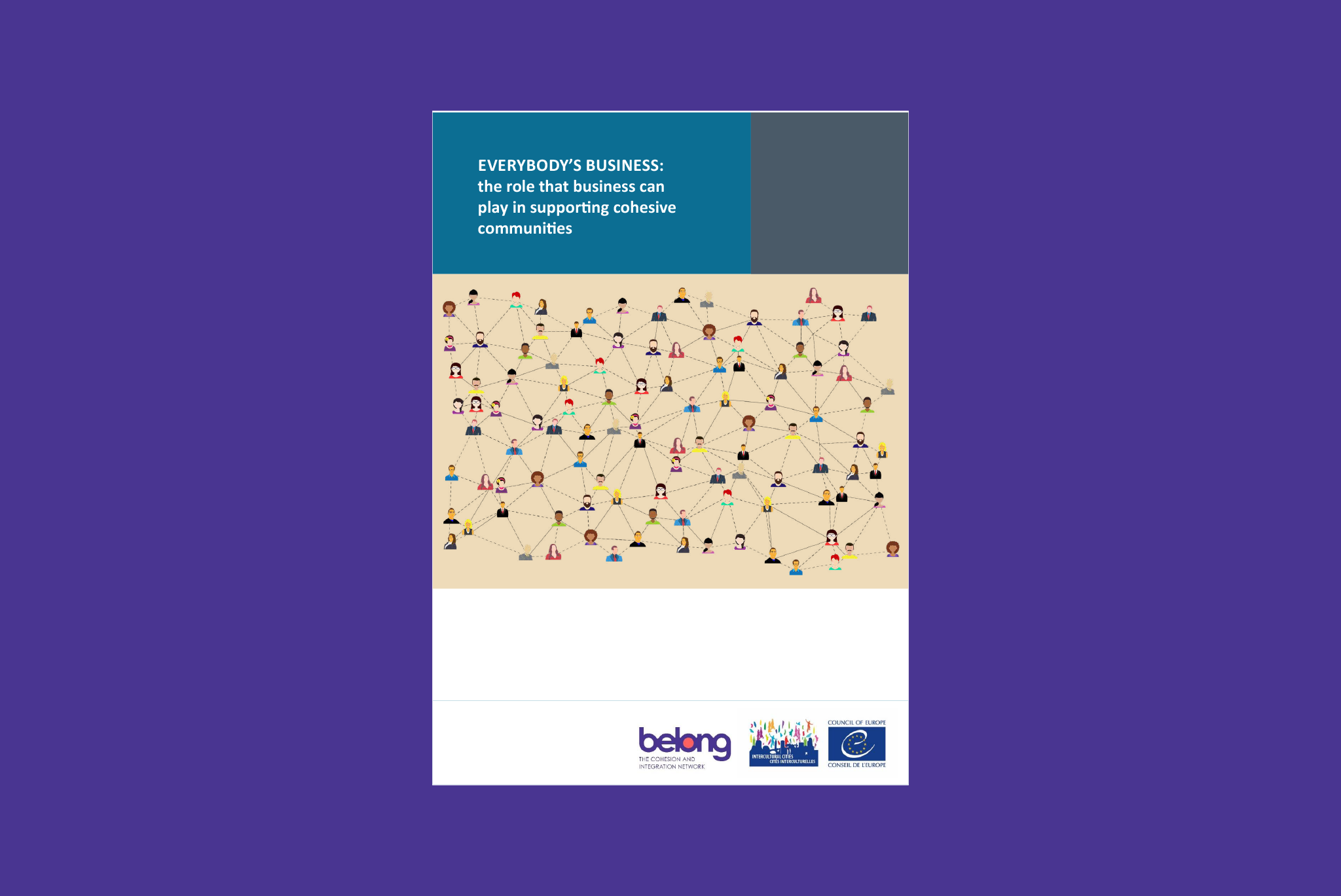
This report, written by Belong – The Cohesion and Integration Network with input from the Intercultural Cities Unit and Network, sets out a series of recommendations about the role that business can play in supporting cohesive communities.